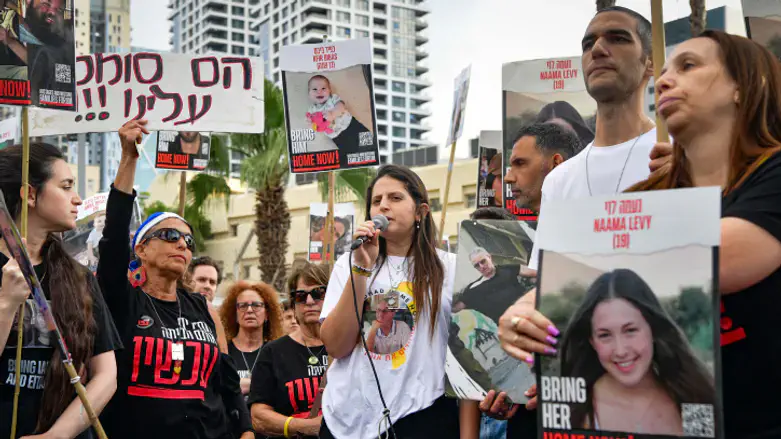
A study conducted over the last three months, which included interviews with families of 18 hostages, indicated a deterioration in the physical and mental state of family members.
According to Kan, family members are dealing with what is termed "ambiguous loss," and its effects are evident not only among the closest circle but also in more distant circles that do not necessarily receive recognition.
From interviews conducted with the families, it emerges that they have been affected occupationally and suffer from difficulties in economic functioning, relationships within the family, and mental issues such as anxiety, depression, PTSD, and survivor's guilt.
Physically, it was found that they suffer from severe sleep difficulties, outbreaks of nervous system diseases, weakening of the immune system, weight loss, eating disorders, increased consumption of sleeping and calming pills, and an increase in harmful habits such as smoking.
The study was conducted by Dr. Einat Yehene, a rehabilitation psychologist, and Professor Hagai Levin, head of the health division in the family's headquarters.
They warn not only about the current situation, which requires a response, but also about a possible worsening upon the return of the hostages. "Given that the families are in a state of prolonged traumatic stress characterized by ambiguity, helplessness, and terror, alongside the struggle for return, a mental psychopathology epidemic and chronic diseases are expected among the families, which will be felt even more after the return from captivity," said the researchers.
The study's findings will be presented Tuesday morning in a discussion at the Knesset Health Committee, which will address the medical condition of the families of the abducted. The family's headquarters will demand in the discussion to establish a civil rehabilitation center that provides long-term support to the families of the hostages, which will be integrated with research.
The Families Headquarters says there is an immediate need to establish such a center and adds: "Given the multi-system trauma and the lack of referrals of families to take care of themselves, regular monitoring and the provision of health services in a proactive approach by service providers are required. Various government bodies actively address some of the emerging needs individually but not systematically, comprehensively, and organized in the long term, and without a structured doctrine."

